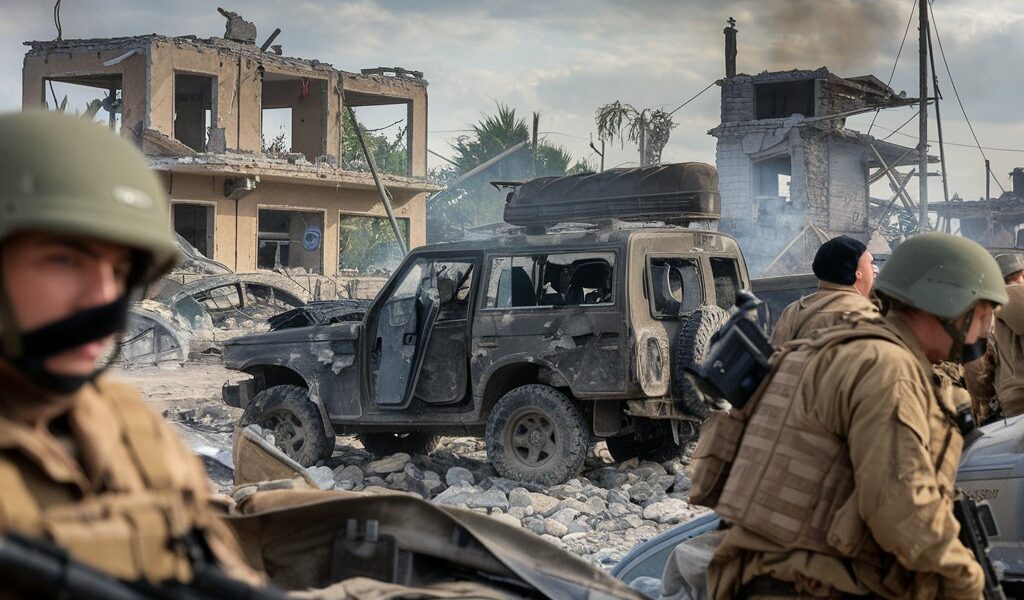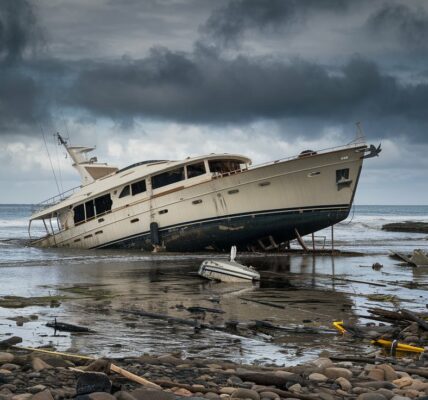Israel Agrees to Ceasefires in Gaza for Polio Vaccination Campaign
Israel and UN Reach Agreement on Temporary Ceasefires
In a significant humanitarian move, Israel has agreed to a series of temporary ceasefires in Gaza throughout September to facilitate a crucial polio vaccination campaign for young children. This initiative, coordinated by the United Nations and other international organizations, aims to combat the recent resurgence of polio in the beleaguered Palestinian territory, where health infrastructure has been severely impacted by ongoing conflict.
Phased Rollout of the Vaccination Campaign
The vaccination campaign, set to begin on September 1, will be executed in three distinct phases, each involving a three-day pause in military operations. The first phase will target central Gaza, followed by southern Gaza, and finally, northern Gaza. During these pauses, vaccines will be transported into the designated areas, allowing health workers to carry out the immunization process safely.
Rik Peeperkorn, the World Health Organization’s (WHO) representative for the West Bank and Gaza, elaborated on the logistical aspects of the operation during a press briefing. He explained that each phase of the vaccination effort will involve approximately seven hours of activity each day, during which the vaccines will be administered to children. Peeperkorn emphasized the importance of these pauses, noting that they provide a rare opportunity to address a growing public health crisis amidst the conflict.
While the initial plan is to conduct the campaign over nine days, Peeperkorn highlighted that additional time might be necessary to achieve the desired coverage. “The three-day periods might not be enough to achieve adequate vaccination,” he cautioned, adding that the campaign could be extended by a day or more in each zone if needed to ensure that all eligible children are vaccinated.
Challenges and Cooperation from Local Authorities
The polio vaccination campaign comes in response to alarming developments in Gaza’s public health landscape. The near-universal polio vaccination coverage, which once stood at over 90%, has fallen to just above 80% due to the ongoing conflict. This drop has heightened the risk of a polio outbreak, a situation made more urgent by the recent diagnosis of Abdul Rahman, a young boy who became Gaza’s first polio case in 25 years.
The situation has garnered the attention of Hamas, the de facto governing authority in Gaza. Basem Naim, a member of Hamas’ political bureau, expressed the group’s willingness to cooperate with international organizations to ensure the success of the vaccination campaign. “We are ready to cooperate with international organizations to secure this campaign,” Naim stated, signaling a rare moment of alignment between the militant group and global health authorities.
The Role of International Diplomacy in Facilitating the Campaign
The decision to implement these humanitarian pauses is the result of intense diplomatic efforts, particularly from the United States. US Secretary of State Antony Blinken played a pivotal role in advocating for the vaccination campaign during a recent meeting with Israeli Prime Minister Benjamin Netanyahu. Blinken emphasized that ensuring the delivery of polio vaccines to Gaza’s children should be a top priority. Following these discussions, Netanyahu agreed to collaborate with the US and other international bodies to facilitate the necessary arrangements for the campaign.
The US Special Envoy for Middle East Humanitarian Issues, Lise Grande, has been instrumental in finalizing the details of the ceasefires. Working closely with the Israeli government, the UN, and other stakeholders, Grande has helped to ensure that the logistics of vaccine delivery and administration are carefully planned. This cooperation underscores the critical role of international diplomacy in addressing public health crises, even in regions where conflict typically dominates the agenda.
Coordination Among Global Health and Humanitarian Organizations
The vaccination campaign is being carried out through a coordinated effort involving multiple international and local organizations. The World Health Organization (WHO), alongside the Palestinian Ministry of Health, the United Nations Children’s Fund (UNICEF), the UN Relief and Works Agency for Palestine Refugees (UNRWA), and other partners, has developed a comprehensive “microplan” to ensure the campaign’s success. This plan includes detailed strategies for vaccine distribution, administration, and monitoring, tailored to the unique challenges of operating in a conflict zone.
According to Peeperkorn, 1.26 million doses of polio vaccines have already been delivered to Gaza, along with 500 vaccine carriers to maintain the necessary storage conditions. The goal is to vaccinate approximately 640,000 children under the age of 10, each of whom will receive two doses of the vaccine, spaced four weeks apart. This two-round vaccination strategy is designed to maximize immunity and help stop the spread of the virus within the densely populated and besieged territory.
The Humanitarian and Public Health Context
The resurgence of polio in Gaza is a stark reminder of the challenges faced by the territory’s two million residents, many of whom have been displaced by ongoing conflict and are living in dire conditions. The situation in Gaza has deteriorated significantly since Israel’s military operations intensified in October of the previous year. Many people are deprived of basic necessities, including food, medical supplies, and clean water, and the public health infrastructure has been stretched to its limits.
The WHO has warned that without at least 90% vaccination coverage, the polio outbreak could spread further, posing a risk not only to Gaza but potentially to the broader region. The immunization campaign is therefore not only a response to an immediate public health crisis but also a preventive measure to contain the virus and protect vulnerable populations.
Broader Implications of the Polio Vaccination Effort
This vaccination campaign represents more than just a public health initiative; it is a crucial humanitarian effort that highlights the intersection of global health and conflict resolution. The successful execution of the campaign could serve as a model for similar efforts in other conflict zones, demonstrating that even in the midst of violence, international cooperation can yield life-saving results.
Moreover, the campaign sheds light on the broader challenges faced by Gaza’s population, where the impacts of prolonged conflict have exacerbated health issues and hindered access to essential services. The international community’s response to this crisis underscores the importance of sustained engagement and support for vulnerable populations, particularly in areas where conflict has severely limited the capacity of local authorities to provide for their people.
Calls for Broader Health Interventions
In addition to the polio vaccination effort, there have been calls for the inclusion of other health interventions in Gaza. The Hostages Families Forum, an advocacy group focused on the release of individuals held hostage by Hamas, has urged the WHO and UNICEF to extend their health initiatives to include these hostages, ensuring they also receive vaccinations and other necessary medical care.
This appeal highlights the interconnectedness of health and human rights in conflict zones, where access to basic services can be a matter of life and death. It also emphasizes the need for comprehensive and inclusive approaches to humanitarian assistance, which take into account the needs of all affected populations, including those who are most vulnerable.
Conclusion: A Critical Moment for Public Health in Gaza
As the polio vaccination campaign in Gaza gets underway, it represents a critical moment not only for the health of the territory’s children but also for the broader efforts to address public health challenges in conflict-affected regions. The cooperation between Israel, the United Nations, and various international organizations in facilitating this campaign is a testament to the power of diplomacy and the importance of prioritizing humanitarian needs even in the most challenging circumstances.
The success of this initiative will depend on the continued commitment of all parties involved, as well as the resilience of Gaza’s health workers and the international community’s ability to respond swiftly and effectively to emerging crises. As the world watches, the hope is that this campaign will not only halt the spread of polio in Gaza but also pave the way for future cooperation in addressing the many other pressing health issues facing the region.





